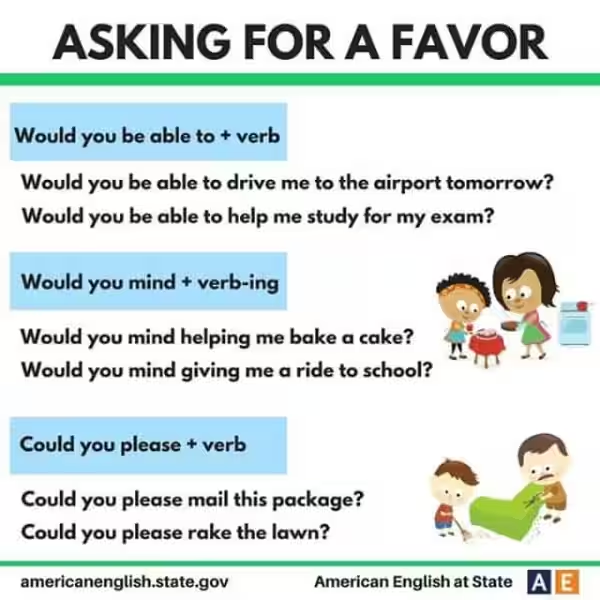
Finding the perfect words to articulate a request can be tricky. Sometimes, “ask for a favor” feels too direct or even slightly presumptuous. This article delves into various ways to phrase requests, exploring nuances and alternatives that can make your plea more palatable and effective. Understanding the context and the relationship with the recipient is key to choosing the right approach.
Understanding the Nuances of “Asking for a Favor”
“Asking for a favor” frequently implies an obligation or a sense of indebtedness. This can be a powerful tool in certain relationships, but it can also create tension if the request feels too demanding or one-sided. The phrase often implies a specific action, a task that requires effort and time from the recipient. However, the request might also carry implicit expectations of reciprocity, unspoken promises of future favors in return. There’s a fine line between a genuine request and manipulating someone into doing something for you.
This is where alternative phrasing becomes crucial. Choosing the right words can significantly alter the perceived weight of the request and the potential for negative reactions. The key is to frame your request in a way that acknowledges the recipient’s time and effort, while maintaining a respectful and non-demanding tone. Avoiding the implication of indebtedness is often a key element of this shift in approach.
Subtle and Indirect Ways to Request Assistance
Instead of making a direct appeal, consider these approaches:
- “Could you possibly…?” or “Would you be able to…?” These phrases soften the request by expressing a degree of uncertainty. They invite a more flexible response from the recipient, who might offer a different solution or simply decline without feeling obligated.
- “I’m looking for some help with…” This phrasing focuses on the task itself rather than on the person. It avoids the potential for the recipient to feel singled out or expected to fulfill an obligation.
- “I’d really appreciate it if you could…” This demonstrates gratitude and sets a positive tone for the interaction. It suggests a sincere acknowledgment of the recipient’s willingness to help.
- “I’m a bit stuck on…” This phrasing frames the situation in a way that highlights your need for support, but it doesn’t put the onus solely on the other person.
These indirect approaches can soften the request, allowing the recipient to feel more comfortable and less pressured. They also make the request sound more like a collaborative effort, rather than a demand.
Framing Your Request as a Collaboration
Instead of explicitly asking for a favor, consider phrasing it in a collaborative way.
- “I’m working on X, and I need some input (or help) on Y.” This highlights your own active participation and seeks collaboration. It implies a shared effort and is less demanding.
- “We could really use your expertise on this project.” This approach suggests a mutually beneficial exchange of skills and knowledge. It positions the request as a valuable contribution to a shared endeavor.
- “I’m planning a trip to [place], and I’m looking for advice on some things to do.” This approach frames the request as a genuine desire for guidance instead of a demand for a favor.
These collaborative approaches emphasize the mutual benefit and shared purpose of the request, making it more appealing and less like a one-sided transaction.
Considering the Relationship Dynamics
The way you phrase a request also depends significantly on your relationship with the person you’re asking.
- With close friends: You can be more direct, but even then, using softening techniques (“Could you help me out?”) can maintain the warm and supportive dynamic.
- With colleagues: Maintain professionalism and focus on the task at hand. Using collaborative phrases like “I need some input on…” or “I’m looking for a way to…” is more appropriate than directly asking for a favor.
- With superiors: Be mindful of their time constraints and responsibilities. Use language that underscores the benefit to the project or the organization. Phrase it as a request for their expertise or guidance.
Choosing the right words to express your need is essential for a successful outcome. By understanding the nuance of each phrase and considering the relationship dynamic, you can express your request in a way that is both effective and respectful. This allows for a more positive interaction and builds stronger relationships.
Finding the Right “Another Way to Say Ask for a Favor”
Ultimately, the best way to articulate a request depends on the specific context. Consider the level of formality, the relationship dynamics, and your target outcome. Avoid language that might come across as demanding, manipulative, or overly direct. Instead, focus on phrases that create a collaborative environment, express gratitude, or seek guidance. This approach fosters a more positive, less pressured atmosphere for both the requester and the recipient. This subtle shift in approach can have a significant impact on the overall outcome.
FAQ: Alternative Ways to Ask for a Favor
What are some ways to ask for a favor that are more subtle or indirect than “please do me a favor”?
Asking for a favor can be done in many ways, depending on the relationship with the person you’re asking and the context. Instead of a direct request, consider phrasing your request in a way that hints at the favor without being overly demanding or manipulative. For example, you could use phrases that emphasize the benefit to the person you’re asking, or frame the request as a joint effort. Indirect approaches often build rapport and foster a sense of collaboration.
How can I phrase a favor request to avoid sounding demanding?
Avoid using language that implies obligation or pressure. Focus on the benefits of the favor for the recipient, even if it’s just a way to demonstrate appreciation for their time and consideration. Instead of “Please do me a favor,” try phrasing it as “I was hoping you might be able to…” or “Would you be open to helping me with…?” This softens the request and makes it seem more like a collaborative opportunity.
Are there different ways to ask for a favor depending on the relationship with the person?
Yes. The level of formality and directness should vary based on your relationship. A close friend might tolerate a more casual request, while a colleague might need a more formal approach. For instance, using “Could you” suggests a more polite and less demanding tone than “Do you think you could?”. Understanding the nuances of the relationship is key to effective communication.
How can I encourage a positive response when asking for a favor?
Present the favor in a way that highlights the potential benefits for the recipient. This could involve emphasizing the impact of their help or highlighting how fulfilling the favor will contribute to their own goals. Expressing gratitude in advance, or offering a reciprocal gesture, can also increase the likelihood of a positive response. Consider the value proposition.
What are some examples of indirect ways to ask for a favor, avoiding direct “favor” language?
Instead of explicitly asking for a favor, you can present a need or task that subtly implies assistance. Examples include: “I’m a little stuck on this project, do you have any advice?” or “I’m preparing for [event], and I could really use some help with [task]”. These approaches invite collaboration and offer the opportunity for the recipient to contribute in a way that feels less like a direct request.
Does the context of the request matter in how I ask for a favor?
Yes. The context heavily influences the appropriate approach. Asking for help with a personal matter differs from asking a colleague for assistance with a work project. The level of formality, the urgency of the request, and the potential impact on the recipient all play a role in determining the best way to phrase the request.
Is it possible to ask for a favor in a way that is both helpful and respectful?
Definitely. Framing the request as a collaborative effort, emphasizing the recipient’s strengths, and expressing gratitude beforehand can make the request both helpful and respectful. This approach avoids making the recipient feel obligated or pressured, focusing instead on the mutually beneficial nature of the assistance.








